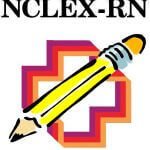A Guide to Preparing and Writing a Graduate Thesis

Writing a graduate thesis can be a daunting task. It requires months of research, careful planning, and hard work. However, with the right guidance and preparation, you can make the process much easier for yourself.
This blog post provides an overview of how to prepare for and write a successful graduate thesis. We will discuss topics such as choosing your topic, researching effectively, structuring your paper, writing compellingly, and editing thoroughly. With this guide in hand, you’ll have all the tools you need to create an excellent piece of academic writing that will impress your peers and professors alike!
Finding the Right Topic for Your College Thesis
Coming up with a topic for your college thesis can seem like an intimidating and daunting task. However, it doesn’t have to be. With a clear process, you can quickly identify a great thesis topic that fits within your field of study and interests you. Here are some tips on how to develop a topic for your college thesis:
- Start by Brainstorming Ideas: Take out a pen and paper and brainstorm potential topics that fit into your field of study and interest you. Record any ideas related to the subject even if they seem unrelated or silly at first glance.
- Do Some Initial Research: Once you have some ideas, choose one or two topics to research in further detail. Check scholarly journals, textbooks, and other primary sources to see what research has already been done in this area
- Select Your Final Topic: Consider all the information gathered during the research phase and select the topic that stands out from the rest, one that will provide interesting material for discussion as well as stir up controversy if need be. Once you’ve selected your final topic, make sure you discuss it with faculty advisors before moving forward with writing your paper. Experienced advisors can offer valuable advice on how best to approach your topic from different angles and help ensure that it is academically viable in terms of scope and complexity.
Finding the Right Resources for Your College Thesis
One of the most important steps to writing a successful college thesis is finding the right resources. Researching a topic in depth requires access to materials, funds, and other necessary resources. Here is some advice on how to find the right resources for your college thesis:
- Identify Relevant Sources: Gathering primary sources such as scholarly journals, textbooks, and articles written by subject matter experts can help you develop your research question and craft an informed argument. Make use of online search tools and databases like Google Scholar, JSTOR, and ProQuest to find authoritative sources for your topic.
- Acquire Necessary Materials & Funds: If your research involves physical materials or experiments that require extra funds/resources, it’s best to plan ahead. Reach out to faculty advisors who can assist you with securing necessary funding and provide contacts that can help you gain access to any scarce materials needed for your research project.
- Double Check Credibility & Authenticity: As with any type of research, make sure you double-check the credibility of your sources before citing them in your paper or drawing conclusions from them. Additionally, beware of plagiarism when relying on secondary sources – always be sure to cite them appropriately in order to avoid potential academic repercussions!
By following these tips, you can easily identify the appropriate resources required for completing a successful college thesis project.
Outlining the Thesis Structure & Designing an Argumentative Framework
Outlining the structure of your thesis and developing an argumentative framework are essential steps in creating a well-crafted and comprehensive paper. Here is some advice on how to go about outlining the structure of your thesis and designing an argumentative framework:
- Brainstorm Your Ideas: Start by brainstorming different ideas, points, arguments, or theories related to your topic that could be included in your paper. A visual tool like a mind map or concept map can be useful for organizing these ideas into clusters or categories.
- Outline a Rough Structure: Once you have all your ideas written down, draw up an informal outline that broadly sketches out the research question, main arguments, evidence/supporting data, and conclusion of your paper. This structure should provide guidance when it’s time to start drafting the paper itself.
- Develop Your Argument: Finally, it’s time to develop an argumentative framework for your paper. Analyze each point you outlined in order to construct a structured argument with clear claims and counterarguments that supports your overall view on the subject matter and provides valid evidence for its conclusions.
Creating a well-thought-out structure and designing an effective argumentative framework before actually beginning to write will help organize your thoughts into logical sections throughout the writing process, resulting in a more cohesive final product!
Executing Your Research & Gathering Data for Your Thesis
Conducting research and collecting data are integral components of constructing a successful college thesis. Here’s some advice on how to approach the different aspects of research and data collection:
- Formulate a Research Design: When beginning your research, it is important to have an overall plan of how you will go about conducting and carrying out all the necessary steps involved. Articulating a comprehensive yet simple research design that outlines the methods and techniques used can help provide guidance throughout the entire process.
- Identify Relevant Sources & Information Gaps: Depending on the topic, sources could range from primary sources such as books, journals, newspaper articles, interviews, etc., to secondary sources like web-based databases or online surveys. Conducting thorough background research helps identify information gaps in the existing literature – these can then be addressed through further exploration!
- Collect Data & Analyze Results: Finally, it’s time to actually begin gathering the data needed for your paper. Different research designs require different types of data collection methods – ensure that all collected data meets quality standards by verifying its accuracy and reliability through appropriate measures such as calibration tests or double-blind studies if need be. Don’t forget to also analyze your results thoroughly – this step is critical in producing meaningful conclusions from your study! By following these steps and paying attention to detail, you can execute research successfully and efficiently while gathering relevant data for your paper!
Analyzing & Interpreting Meaningful Insights from Data
Data analysis is a crucial step in research and critical to uncovering meaningful conclusions from what can seem like an insurmountable amount of data. Here’s some advice on how to go about making sense of all the collected data:
- Choose Appropriate Statistical Methods: Different types of data require different statistical approaches. It is important to identify which methods are most suitable for the data you have gathered – choose the right methods and apply them effectively to ensure reliable results.
- Explore & Visualize Your Data: Once the appropriate statistical measures are chosen, it’s time to start exploring your dataset. Taking a deeper look into your data through visual techniques such as graphs, charts, or other forms of graphical representations provide the much-needed context in understanding patterns, relationships, trends, and outliers within the dataset.
- Draw Conclusions: Finally, use what you have discovered from analyzing your data in order to draw meaningful insights that help answer your research question(s). Remember that these insights should be logical, fact-based, and backed up by sufficient evidence! By following these steps and utilizing various analytical tools effectively, you can analyze and interpret relevant insights from any given dataset!
Presenting Conclusions & Justifying Recommendations Effectively Through Writing & Verbal Discourse
Presenting the results of your research and defending the conclusions drawn from it is an important part of any writing or verbal discourse. Here’s some advice on how to present results and make recommendations effectively:
- Identify Key Points: When presenting your results, identify the key points relevant to answering your research question(s) that were discovered through data analysis – these should be concise yet comprehensive enough to explain the topic at hand.
- Prioritize Evidence: When formulating your conclusion, prioritize evidence that supports it. Refer back to the data gathered and presented during the course of the study in order to create a narrative that logically urges the audience towards believing your conclusion.
- Give Supportive Arguments: Finally, provide supportive arguments that demonstrate why your recommendation(s) can help address any issues identified by the study, such as cost savings, increased efficiency, etc., as well as potential risks associated with any action taken.
By following these steps, you can learn to effectively present conclusions and justify recommendations both through writing and verbal discourse!
Editing, Proofreading and Perfecting Your Work Before Submission
The process of editing and polishing written work is a major part of any writing project. Here are a few tips on how to ensure your work is as perfect as possible before submission:
- Read Through It Backwards: One way to make sure you catch errors in grammar, syntax, etc. is to read through your document backward – this will cause any mistakes to stand out and make it easier for you to correct them quickly.
- Ask a Friend or Colleague: Have someone who knows English well or has better knowledge or an alternate perspective than you do read over your work – they may be able to spot things that you missed!
- Take Breaks & Come Back Refreshed: Finally, don’t rush the gainful process of editing and proofreading your work – take regular breaks and come back with a clear head so that mistakes can be easily detected and corrected.
By following these steps, one can carefully review their written work and make sure it meets the highest standards of presentation before submitting it!
Your Graduate Thesis Is a Major Milestone
Gathering and analyzing data is essential in order to draw meaningful insights from any given dataset. Presenting results effectively through writing or verbal discourse requires identifying key points, prioritizing evidence, and providing supportive arguments for your recommendation(s).
Finally, it’s important to take the time necessary to review your work before submission by reading backward, having someone else read it over with a fresh perspective, and taking regular breaks so that mistakes can be easily detected. By following these steps you will ensure reliable research results presented in a polished manner!
[Featured Image Original]








